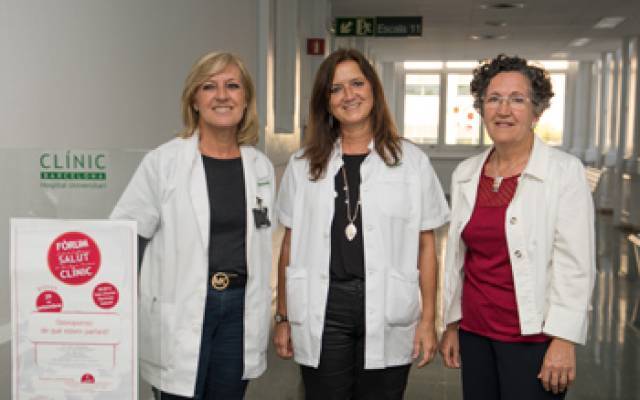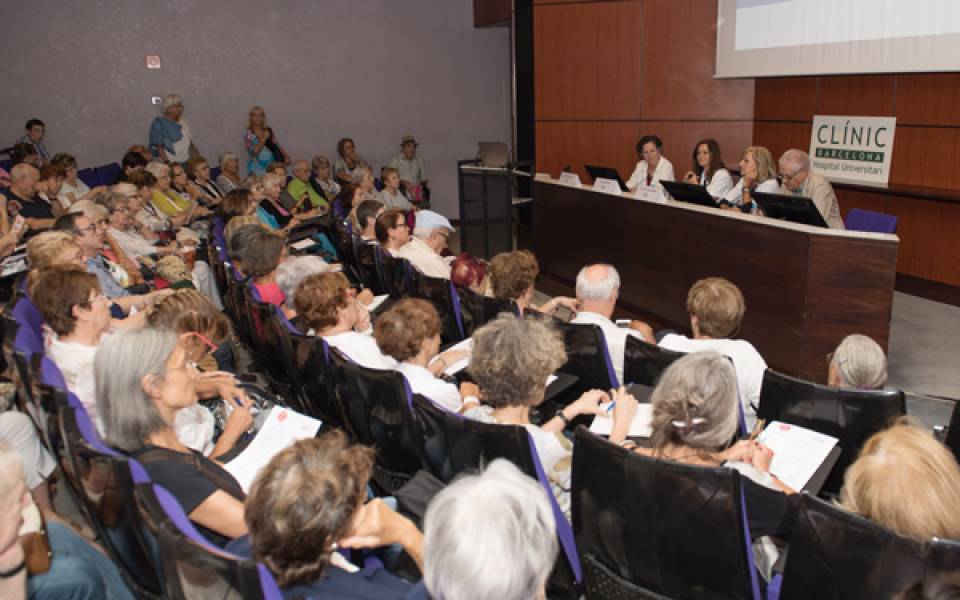
According to Dr. Guanyabens, drugs that can combat osteoporosis "are very good" and although not cure, "reduce the risk of fractures." She also emphasized in the need to take the medication that doctors prescribe, because as recalled Ms. Saura, "as it is a silent disease, we found that some patient stops treatment."
In addition to medication, the speakers stressed the importance of good levels of vitamin D, since it is responsible for the absorption of calcium from the intestine. And where do we get vitamin D? The sun: It is recommended that people who have osteoporosis keep sun exposure of about thirty minutes, although this time depends on the geographical latitude and the risk of skin cancer. Equally important is a rich in calcium intake reaching 1,200 mg daily.
On 27 October, Fòrum Salut Clinic offers a talk on "L'Area Comprehensive Health of Barcelona Esquerra: treballem coordinats per atendre't millor" in which Dr. David Font, Director of Strategy and Planning at Clinic, will explain the health organization between the hospital and primary care.

